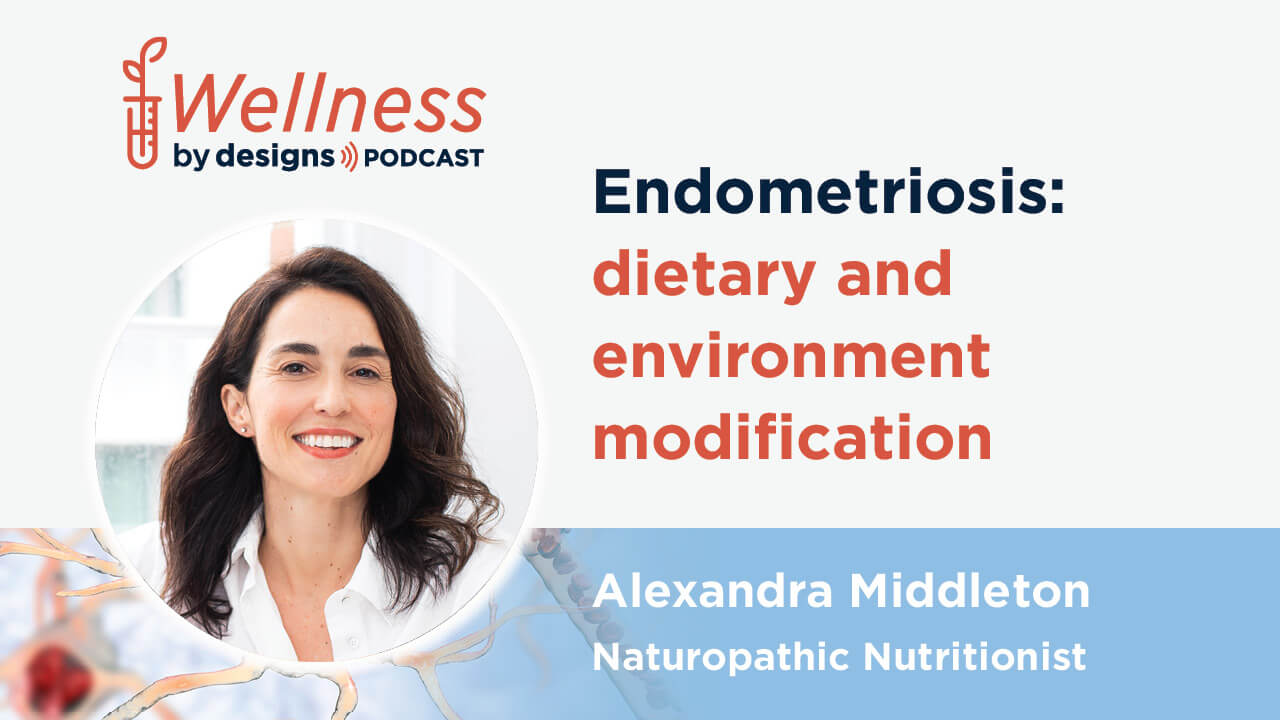

Joining us today is Alexandra Middleton a Naturopathic Nutritionist who today is going to take us through a Practitioner/Patient HYBRID story of Dietary and Environment Modification of Endometriosis.
In this episode, Alex talks us through her personal journey with endometriosis, and also discusses her recently published paper on Endometriosis dietary practices and modification.
About Alexandra:
Alexandra Middleton is an experienced natural medicine clinician with over ten years of experience in helping women optimise their hormones & reproductive health.
Her mission is to show women with Endometriosis how to get their quality of life back thru the combined power of natural, environmental and conventional medicine.
Alex’s approach is grounded in the principles of both naturopathic and evidence-based medicine. She is passionate about incorporating the latest research into her clinical practice and recently co-authored a 2021 paper published in the peer-reviewed Journal of Alternative and Complementary Medicine.
Alex also works extensively with the medical community because she believes collaboration is the best way to ensure positive outcomes for her clients. Working closely with specialists in gynaecology, endocrinology, fertility and general practice (GPs), she uses functional pathology testing and environment assessments to ensure her clients get the correct medical diagnosis. This is key in her treatment plans that include advice around therapeutic dietary strategies, lifestyle advice and nutritional supplementation.
Outside of her clinic, Alex is a passionate advocate for her industry and supports lobbying activities thru her work at the Australian Traditional Medicine Society (ATMS). Here she also runs Australia’s largest Continuing Professional Education program for fellow practitioners who like her want to stay on top of the science.
Connect with Alex:
Website: alexandramiddleton.com.au
Instagram: @alexmnutrition
References:
Armour M, Middleton A, Lim S, et al. Dietary Practices of Women with Endometriosis: A Cross-Sectional Survey. J Compl Altern Med. 2021.0(0):1-7. [Full Text] https://www.researchgate.net/publication/349578175
https://www.liebertpub.com/doi/10.1089/acm.2021.0068
Transcript
Introduction
Andrew: This is “Wellness by Designs,” and I’m your host, Andrew Whitfield-Cook. Joining us today is Alexandra Middleton, a Naturopathic Nutritionist, who’s going to be taking us through a patient-practitioner hybrid of managing endometriosis with dietary and environment modifications. Welcome to “Wellness by Designs,” Alex, how are you?
Alex: I’m good. How are you going, Andrew?
Andrew: Really good. Thank you. Now you’ve got a lot of experience. But first, take us through a little bit of your history, maybe pertaining to endometriosis, say when you first started to notice symptoms up to diagnosis.
Alex: Well, so first of all, I developed the heavy period when I was 14 but didn’t really know I had an issue until I started to get pain around the age of 20, and after seeing three different specialists, the last two told me it was in my head, and I found a fourth who believed me, and I had my first laparoscopy and I was diagnosed with Stage 2 endo at the age of 21.
So that’s how I’ve been diagnosed with endo. And I’m 41 now and it’s been a lifelong journey for me, trying to figure out how to manage it. And through the natural medicine, I did discover that you can’t cure it, but you can definitely reduce symptoms with the use of food and natural medicines, etc.
Andrew: This is really concerning how medical practitioners and it still does still happen. I’ve spoken to somebody just the other day who said that’s a condition that doesn’t really exist.
Alex: Yeah. It is still going on…
Andrew: This is in this day and age.
Alex: Yeah, that’s right. I mean, I’d say probably, I don’t know, 10 women a week with endo and they’re either getting dismissed, their symptoms are getting dismissed, or they’re getting missed completely.
I probably see more women with undiagnosed endo that consequently then go ahead with doctors to get diagnosed with the private doctors versus seeing women who are already being diagnosed with endo.
And when you think about current the most recent statistics that one in 10 Australian women have diagnosed endo which means they’ve had to have a laparoscopy before fully diagnosed. To me, that’s terrifying in terms of how many more women might actually have it. So it’s definitely a disease of this century.
I have my theories as to why, but yeah, the doctors not diagnosing it is a problem. I actually think it comes more down to education. A lot of the GPs, they’re so busy. Generally, they get 15 minutes with a patient and their education space is their lunch break where usually they’re seeing pharmaceutical reps versus health practitioners who have a bit more of an integrated approach and are maybe a bit more on top of the research.
But I’ve found that doctors are open to learning more and to being guided as to how to look for symptoms and also, you know, other things like blood markers and things that they might not know about that can potentially indicate endo or other issues that involve reproductive information, etc.
Andrew: Yeah. I guess you know when you say the word “missed,” I can accept that because it’s quite a difficult disorder to detect. And that’s why there’s such a delay in diagnosis from symptomatology. But dismissed? That’s not really applicable or appropriate for any health care practitioner to dismiss somebody’s claims of concern.
So I take your point, though, about education. I remember an education series. It occurred over several weekends and it was in Sydney. I think Jason Abbott spoke at it, Leah Hechtman, and there was a few other people that spoke there. Is that correct?
Alex: You’re talking about “The Symposium 2017”? The “Endometriosis Symposium”?
Andrew: Wasn’t the “ATMS Symposium,” it was a seminar series held in Alexandria, I think it was.
Alex: The idea of possible.
Andrew: Was that it?
Alex: Yeah. Don’t quote me, I think it was in 2019. Yeah, that’s right. “Gavin’s Sex”
Andrew: Right.
Alex: Yeah.
Andrew: Got you. But that was very well attended by GPs and holistic practitioners, Alex. Correct?
Alex: I don’t know if it’s so well-attended. I was in the room. There were maybe 30 or 40 people in the room. At least half of that were complementary health practitioners. And frankly, I was at two of the talks but some of the doctors in the room were very resistant to some of the new information that was being presented to them.
And there was one particular doctor that got up and actually tried to argue with one of the practitioners who was seated up talking about the research. So I wouldn’t say a lot, but there were some in. That’s also an integrative niche at that hospital. So it’s the audience that do a good job.
Andrew: Got you. Got you, I see. So tell us more, though, about when your approach to endometriosis changed. You said that, you know, it’s changed dramatically once you had embraced holistic practices, but what was the initial journey and treatment? And then what changed along the way for you?
Alex: Well, I think the first step was that I realized I was working in corporate, I realized that working with diet helped me reduce my symptoms. Looking back now, I laugh because I was nowhere near where I needed to be. And on the back of that, when the mark attempted financial services, I left to study nutrition at Nature Care.
And it was really through my deployment at Nature Care that I started to, especially in the second or third year, these light bulb moments of how not just food, but especially environmental stressors can actually impact endo symptoms.
And, you know, even I remember once, the big turning point was I was writing a paper on heavy metals and how that can contribute to different reproductive issues. And so I thought, “Oh,I’ve got six amalgam fillings in my mouth. I wonder if that has anything to do with my symptoms?” And took myself off to an interpretive doctor, Dr. Emmanuel Varipatis, and realized that I had pretty severe mercury poisoning.
And when I addressed that, when I was still studying, a lot of my symptoms got a lot better. And it had terrible chronic fatigue in most of my 20s, that significantly improved. I dropped 10 kilos of that doing anything with my diet. Things started to radically shift. So learning about how to detox properly and how to work with food to manage my symptoms when I was studying well, was a very big pivot point for me.
The other thing I mentioned is that after my first laparoscopy, the endo was there, but I didn’t really struggle with it. Even during my time at Nature Care, I didn’t struggle with it. But when I moved into a house in 2014 in Paddington in Sydney, and I suddenly crashed, had my very first mystical endometriosis attacks.
Most women call them flares. It was so bad that I was visiting a client and the client had to call an ambulance and I had to go to hospital. That was definitely not a ones-off for me with these endo flares. And so, that was another pivoting point, learning how things in the house could totally trigger me. I’ve since learned that it was definitely mold.
And so one of the first things I’m always looking at with the women I see with endo is are they living in a water-damaged building? Do they have micro-toxin exposure? Do they have any other sort of chemical sensitivity in the house that could be driving their symptoms as well? So that was a big turning point too.
Andrew: When we’re talking about these multifactorial issues affecting one condition, you know, you speak about stress and then you talk about mold, so there’s an immune of assault. You talk about environmental issues, other pollutants, things like that.
So obviously, there’s got to be a detective hat there about how wide do you spread that met to look at heavy metals, to look at, you know, emotional stress, psychological stress, blah, blah. Do you look at all of these at intake and do you go through everything first? Like, that’s a lot of work.
Alex: It’s, listen, women with endo usually don’t just have endo, they usually got a whole lot of different comorbidities that go with it. The ones I most often see obviously got issues. Usually, there’s a parasite or some sort of bacterial overload which is driving the LPS in the gut and then consequentially creating more inflammation in the peritoneal cavity.
Thyroid issues are also common. Food intolerances are super common. The mold issue is super common, especially on the east coast of Australia. Mycotoxins, which are the poisons that the mold spores breathe out, they drive aromatase in the liver and that in itself can then drive estrogen, which can then make endo worse.
So, yeah, it’s like I say to my clients have got to be a questionnaire that they fill out before they come to see me. But what I tell them is, “Look, it’s not just going to be one thing. It’s like unpeeling an onion and just got to check things off the list. And it’s everything from big infections, the endo itself looking for things in the bloodwork or stool analysis or wherever it is that might have been missed.”
Working with food, you know, what are they sensitive to? What will they do better off, etc.? There’s a very big, long way, so that it even goes all the way down to like small things in the house. So for example, you know, are they using scented toilet paper, and is it upsetting the vagina microbiome, which could potentially then cause issues?
Could they be using toxic house cleaning products? Are they dry cleaning their clothes with stuff that’s chemicals that are toxic? There’s a huge list. It’s so big. I’ve got four pages of it that I send as a checklist now to my clients. So, yeah, it is really multifaceted and it’s too much for me to help them on their own. I’m really big on referring.
I passionately believe that you get the best outcome for the client if you work with other practitioners, especially medical practitioners, which I think in our profession none of the practitioners are doing, maybe because they don’t know how, they haven’t got the confidence. I’m lucky enough to have come from a family of doctors, so I kind of know how to talk to them.
But working with the different doctors, with endo women usually, you know, it’s a GP, an endocrinologist, an excision specialist/surgeon/co-mycologist. The person I probably work with the most is a functional gastroenterologist because sometimes herbal medicine doesn’t work, who got bugs, etc.
And so I pull in together a chain for the woman who has endo and probably at list about the things is actually how you get the ultimate outcome for her. So I’m being on that.
Andrew: Right. You mentioned that you discovered early on that dietary modification eased your symptoms, so we’ll go down that path, but before we do, you just mentioned a gastroenterologist. So, do you find that there might be a place for fecal microbiota transplant in endometriosis? I know that sounds like a big job.
I mean, it’s almost glib to say this, a “seemingly” lesser condition rather than, you know, something fulminant like Crohn’s. But, endometriosis is much more serious than just pelvic pain and a little bit of tiredness. There are people who have lost bladders. There’s, you know, horrible surgeries that women have to go through because of endo. So it’s not a trivial disease at all. So FMTs, do you think there might be a place?
Alex: Personally, I am not a big one of FMT, especially in Australia. The way the samples are taken from donors and screened isn’t optimal. It’s certainly not to the standards of those in America. And there are quite a few studies on all the other things you absorb from someone from an organ transplant or even just a fecal transplant, including bugs.
Who knows how well that person is taking care of themselves. And if everything’s not being screened for, you don’t know what you’re taking on from the person. So I’m not sure about FMT. I do think there is a place for specific antibiotics, particularly in the presence of a nasty parasite like blastocystis.
I know a lot of my colleagues won’t agree with me. But for me, it’s all about getting the quality of life back as quickly as possible for the client so they can have a life. But they also say get more invested in continuing to work on everything else that could potentially drive in all of the symptoms.
And, you know, antibiotics an ideal but sometimes they’re required and if they’re managed properly and the supportive work with probiotics and all the other gut restorative stuff is actually done well, you can give them a good quick fix to get a better quality of life. Also, if it is something like a parasite, you’ve also got to measure up.
Well, the hormones might not be doing the job and the parasite might go away for a year and then come back. And in the meanwhile, the parasites leaching, things like endotoxins and continuing like OPS to contribute to inflammation in the peritoneal cavity.
So what’s better, potentially injuring the microbiome, but also getting rid of that bug, but then doing the repair work? To me, that is better for most people. You always want to try the natural way first, but there is a place for that for some people. And it does help.
Andrew: Yeah, sure.
Alex: Also, a lot of the endo symptoms go away with antibiotics, which is very interesting.
Andrew: Well, okay. So is this because of a suspected parasitic organism or other organism? Like how have the antibiotics been prescribed?
Alex: It depends on the antibiotic and what. So it is multifaceted. If we’re talking about a parasite, you’re eradicating any potential inflammation that the parasite might be causing. So they might get relief that way. But more importantly, you know, there’s that hypothesis, one of the many that underlying endometriosis is bacterial contamination, where LPS basically translocates from the gut into the peritoneal cavity and thus inflames things.
So it could be working by that route as well. I’ve seen a lot of women on doxycycline feel a lot better too. Interesting, a lot of people as a side note, women that have, you know, seizures or micro toxin issues also feel better on long-term doxycycline. So, yeah, it’s a bug thing.
You look at the bugs and that was probably the other very big issues that I’ve mentioned before was, I was a patient of Leah Hechtman’s last three or four years learning about the different microbiomes of the body, the sinus microbiome, the microbiome at the mouth, the gut, the vagina, the uterine cavity, etc., and how all of those microbiomes work together to impact health generally, but especially reproductive health.
And you have to clean those microbiomes up and get them working optimally to reduce symptoms. Absolutely.
Andrew: So when you’re talking about these various microbiomes that were microbiota populations, you spoke about LPS, so are we really talking about managing inflammation? So do you measure inflammation as a general marker to see if the microbiota, that’s probiotics, or foods, that you’re giving these women is actually having an effect on their inflammatory status? Like, how do you tell that they’re getting better symptomatology?
Alex: Yeah, I have to be honest, the moment I told them to figure out if it’s improving so I ask them about the symptoms.
Andrew: Got you.
Alex: That’s the main way.
Andrew: Got you.
Alex: Yeah. The severity of this [inaudible 00:17:47]. A lot of women with endo, the symptoms won’t go away completely. They can do all the right things and it’d be 80 or 90% better but it’s still kind of humming away in the background.
Andrew: Yeah. Which is, like that dramatic improvement, but you’re right. Like, unfortunately, there’s just no cure. Now, we have to go into food and dietary modification because indeed, you’ve written a paper on this now, haven’t you?
Alex: I have. I have with the voice-over Internationally Spa Complementary Medicine. Thanks for mentioning.
Andrew: Hi, Dr. Mark. How are you? You’ve got a funny accent. Tell us about your paper.
Alex: So constantly talking about how diet can radically help women with endometriosis to Mike and Justin Sinclair and stuff over and again. They had already completed a survey of 590 women where they asked these women about generally the different ways in which food might impact their symptoms.
And what they wanted to do which is to see if there are any common themes in the survey results. And so what they found is that 80% of women did use diet to manage their symptoms mainly by cutting out dairy, and fodmaps, and gluten. Their biggest main benefit was a reduction in endo-associated GI symptoms like IBS symptoms for example, also improvements in pain scores and some in fatigue.
And so the niche of team had completed the survey and we got together to write it all up. And what we wanted to do was correlate the things in the paper with preexisting studies, which was my role, and I was trying to figure out the ways in which these fodmaps, gluten, dairy could actually potentially, from a mechanism point of view, be reducing symptoms.
So, for example, the casein in dairy foods and how that can be inflammatory by nature, and how the histamine component of dairy foods could potentially drive estrogen, which can then, you know, also go on to fuel [inaudible 00:20:06].
Things, the way fodmaps can be inflammatory in the gut and can make endo worse in that respect. So, yeah. So I wrote the discussion piece and what was really interesting was particularly on the histamine side.
It was really nice to be able to write something about how high histamine foods, aminic foods, do drive symptoms of endo because no one’s really written about it yet. And it’s definitely not in any of the formal guidelines recommended.
And, I mean, a lot of the formal guidelines are still recommending dairy for endurance. So, yeah, that was the shot of the paper and I’m now trying to convince them to do another one.
Andrew: Yeah. Good on you. That’s great. So that’s very interesting to me as well with the histamine approach because we know about biologically active amines with say migraine, migraineurs that’s been quite accepted for decades, and “allergy clinics” will work with these patients on monitoring that for their migraines.
But now we’re talking about a condition at the other end of the body. And so is there resistance to accepting that these biologically active amines may have an effect on? I mean, what is it? Is that inflammation again or is that some other mechanism? Like I’m trying to think here.
Alex: No, it’s not a resistance. There’s not enough evidence directly correlating symptoms of endometriosis with histamine foods or even the histamine process in the body generally. There is quite a bit of evidence showing how if you eat something that amine-rich food, that’s rich in histamine, or a food that liberates histamine in the body, that can stimulate estrogen, and then estrogen can then stimulate protocells to release more histamine, and it goes on like a chicken, an example.
And so a lot of women can get relief from histamine kind of symptoms but also from estrogen-type symptoms by cutting out foods that are either rich in histamine now that we break histamine, you know, biological amines. But, yeah, there’s no papers empirically correlating H maybe I’ll wriright e first briefly.
Never know, hear that Mark [inaudible 00:22:30], but, yeah. And I was kind of excited to mention I did write a little bit about that in the paper when I was talking about dairy because it’s for me with clients, I mean, cutting on gluten is great because you definitely decrease inflammation. And a lot of women have issues with gluten and weight.
Cutting out dairy, particularly, cow dairy is also great for similar reasons, but in my experience, personal, and with my clients, the biggest relief you get is by cutting out histamine-rich food.
And it’s especially important since the Mainstream Media is constantly promoting probiotic foods, for example, fermented foods to everyone quick with gut health. Well, they’re not actually good for everybody, especially women with endo. They can make them a lot worse. So, yeah, I hope that women will really.
Andrew: Yeah. So I mean that it’s one of these things where we go into these cycles of what’s good and bad and like, fermented foods are all good. Yeah. I’ve still got concerns about nitrosamines in fermented foods and what that played.
But anyway, we get off track. We need to go a little bit further into, you and I have discussed frank nutrient deficiencies that you’ve seen in endometriosis, things like iron. So, how do you assess and address iron deficiency in endometriosis?
Alex: Well, the first way I see it is through bloodwork. Pretty much for every single one of my clients, whether they have endo or not, I’m referring them to a GP for the full bloodwork for everything. And I write that letter. I try to refer to people who I work with. So, yeah, there’s a standard iron panel that goes through the iron ferrites concentration transfer, and etc.
And I have a look at that. I do sometimes have question marks about the ranges of iron and if that’s updated yet. But you know, and the women with endo typically are anemic, and it’s really hard because iron can flare symptoms of endo in women that are sensitive to it. I can’t tell you how many people have seen me included once actually, I didn’t know until after the fact.
That they’ve got endo, they’re having heavy bleeds, they’re probably not eating enough iron-rich foods. The stomach acid isn’t working very well so for not absorbing it very well, and the GP says, “You’re anemic,” and sends them off for an iron infusion and then within 48 hours, they’re at the hospital because they’ve had a severe flare.
And what’s happening is the infusion has just completely flared things up because iron by nature is an oxidant. It will inflame things that are re-inflamed. And this is also in the literature, it definitely feeds bugs. And there’s a couple of different really interesting papers that have talked about how endo is simultaneously a disease of iron deficiency and iron overload.
Because what happens with women with endo because of the funky immune dysfunction that’s to do with macrophages, is that they take iron in and they store deposits of it within these endometriosis lesions in the peritoneal cavity, mainly.
And so what happens is these women actually start to accumulate and build up their irons in these lesions, but they’re not actually able to access it for things like transporting oxygen around the body, etc.
And so they have symptoms of anemia. What happens is the iron accumulation eventually can hit a toxicity level and then that can actually fuel more development of endo, so I’ve written. So it is in the literature, I mainly see it with my more sensitive clients. There are some times where you’ve got to give people iron, pregnancy being a recent one.
If someone really needs it, I either give them a chewable, or more often I actually will refer them to a compound pharmacist and they can get some transdermal iron made up and they just put a little bit on their wrists at night and try and get it up that way.
But a lot of women, once they stop amines and histamine foods, and they come off iron for a while and they try to reintroduce it, can actually sense a little bit of a reaction.
They might sense a bit of pain, like a headache, you know, and they realize they can feel the reaction to it. So there are other ways of supporting iron in that respect. I’ll be working on diets really big one. It’s really hard being a vegan if you have endo because it’s really hard to get that iron in. I’m a very pro, lamb, and organic grass-fed animal sources.
Working on stomach acid also is obviously a big one, making sure that protein intake is adequate. That’s another really big one. Most women don’t eat half the protein they need or they’re not metabolizing it properly. B12 is obviously another supportive way. And then just educating women generally about, iron-rich foods, how to best absorb iron, other things you can do to help with iron like course and cookware, etc.
So there are lots of different ways around it. Yeah, but iron supplementation for me with endo is definitely a loss, and so on.
Andrew: And you spoke about the tests that you send your patients away with or for. So is there anything apart from the standard full-on studies that you do like, you know, methylmalonic acid or anything like that?
Alex: I know. Well, a lot of it is…
Andrew: Really pleasant.
Alex: …only that had up for are actually pretty standard tests just to get the full bloodwork and the liver panel and everything else. But a couple of things that I ask for which the doctors answer for me with until I show them evidence for what I’m asking, CA 125, which was traditionally a marker for ovarian cancer, is being used by a lot of more progressive gynecologists around town as a marker of reproductive information.
That’s definitely the one we use. And the evidence for that is a bit conflicting, but as a rule, if the range is zero to 36, and if there’s someone who’s got, you know, anything over 10, you know something’s going on. So CA 125 is a really big one and I always measure a fourth thyroid panel if I can, because I often see thyroid issues go along with endo.
IJG is another really big one. It tells me a lot about their environment, particularly if they’re in a water-damaged building. So, yeah, there’s a whole lot. It depends on friendly I am with the doctor because I always say I don’t want to take expensive aid.
Andrew: Yeah. True. Now, we spoke earlier, you spoke about earlier about living in a family of medical practitioners and dialoging. You’re quite comfortable with it, but many people aren’t. So what can we do to optimize effective dialog between yourself and the medical community?
Alex: I think the first thing I would say is make yourself known to the medical community, which sometimes can be a bit of faking it intil you make it. You know, you might when arriving firstly about complementary medicines can help women with endo and handed out to all your local doctors and stuff.
For me, I know I sometimes still do that actually, but I often just write a letter saying, “Hey, I saw Jane and she has this, this, and this. And because, you know, this is her family history, this is her personal history. And because of this, would you consider,” I’m going to tell a doctor, “Would you consider potentially ordering this?”
And most of the time they’re agreeable with them or like the CA 125 which I know a lot of GPs and for me, often provide a study so and I’ll stick it on the end of the letter. So you’re writing letters, writing emails, making yourself known to them as this person who’s working with these sorts of clients.
And because that helps you get all the testing done under the supervision of a doctor. And as a side note, you know, it gets built to medicare, which at least helps, but also it really helps with the business.
You can get cross-referrals and stuff and you start to work as a team. So I’ve got a network of doctors, they send me people, I send them people, we chat on email. Eventually, you’ll get to chatting on email and stuff, but you have to make yourself known.
Andrew: To start at, now, you’re not just confident, but competent as well. So you now work within this framework of specialists and things like that. Do you feel confident about saying, “Look, I’m suspecting this. Would you be amenable to a referral for this practitioner?”
And so do you actually recommend a certain practitioner or various practitioners who are expert in like laparoscopic examination? I assume was what I wanted to say. Do you confidently ask for that?
Alex: Yeah, I do, especially with like certain areas so for example, stenography, getting a deep pelvic ultrasound, there are certain number of people in Sydney who do that really well. Ultimately, you can’t diagnose through that, but it can again, it could give you a pretty good idea whether there’s endo or fibroid or something similar or not.
So, yeah, I definitely mention particular names. Really, they will refer them to someone else. But the thing with medical referrals is as long as it’s a referral for a gastroenterologist, for example, it can still go to another gastroenterologist and be valid for a year.
Andrew: Yeah.
Alex: Yeah. But the good doctors all know the good doctors. That’s my experience in Sydney.
Andrew: Right. So your work through this to send your patients…? Sorry, I cut you off. Say that again.
Alex: No. It’s okay. As I say, you never really have to convince them, you can just kind of mention it. In terms of your question about, you know, mentioning you might suspect endo. Yeah, I say it these days. I probably didn’t use to when I first started, but now, you know, it’s pretty obvious to me when I meet someone with endo.
I don’t know what it is, but I mean, the CA 125 and the blood work is definitely a marker. The visible symptoms are a marker. Their reported symptoms and how they’re reacting to things and the environment that living in, to me, are big signs. Sometimes you can very often pick what’s going to come back. Not all the time, but a lot. So, yeah. Yeah, go on.
Andrew: One of the big tricks is to know the good doctors. And obviously I guess it’s a process of elimination for many women. They have to go from those people that don’t even believe endometriosis exists to it’s all in your mind to finally somebody that will listen. Unfortunately, they have to make that journey.
You can bypass that and just send them to the fantastic GPs who know the fantastic surgeons rather than that. So I guess what we need is more papers from you.
Alex: Well, papers but I have to say, like the upside of like the endo that I had and stuff and I had a few other health conditions. I make jokes with my clients like, “Look, there aren’t many medical conditions that I haven’t had.
So I do know about the doctors.” And so I’ve got to know, kind of, who are the good doctors, which is the good meds, who are open to working with complementary medicine practitioners, which is a big one, and also who are going to listen to their patients, which is probably one of the most important things people who actually really listen.
And there is definitely, you know, a network of doctors like that in Sydney. You just got to know where to find them. I have a big master list I have worked on over time. I have segregated it by modalities, city, suburb, name. I’ve actually created that with a couple of other practitioners, so it’s a pretty big list.
So, yeah, I know. You get to and you also you work with other practitioners and you feel like talking my mates: Kate, Paul, and Lara, and Leah, and we all kind of comparing lists as well. So, yeah.
Andrew: Yes. And we do need to shout out to those people. So Leah Hechtman, Lara, Bryden, Kate Power, there’s so many others, but also Justin Sinclair, Mike Harmer at University of Western Sydney. Is Justus still there?
Alex: Yeah.
Andrew: Anyway, we can cover that another time. Yeah, but Alex, thank you so much for taking us through. It’s sort of a hybrid podcast because you are deeply involved in this, not just from a caring perspective, but from a self-care perspective. But I thank you so much for taking us through the dietary modifications and how we can help patients with endometriosis today on “Wellness by Designs.”
Alex: Thanks for having me, Andrew.
Andrew: Always a pleasure. And, of course, thank you for joining us today. You can get all of the other podcasts and the show notes for today’s podcast on the “Designs for Health” website. And I look forward to meeting you next time. I’m Andrew Whitfield-Cook. This is “Wellness by Designs.”



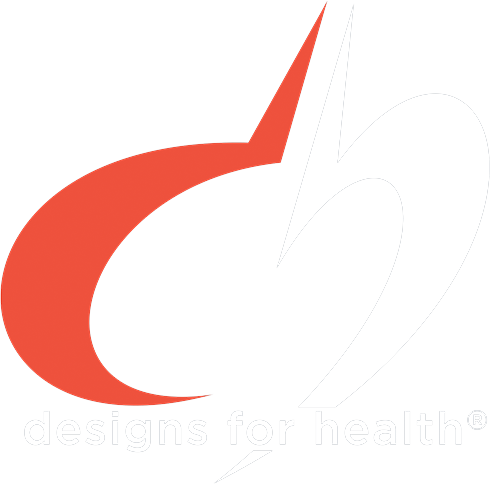


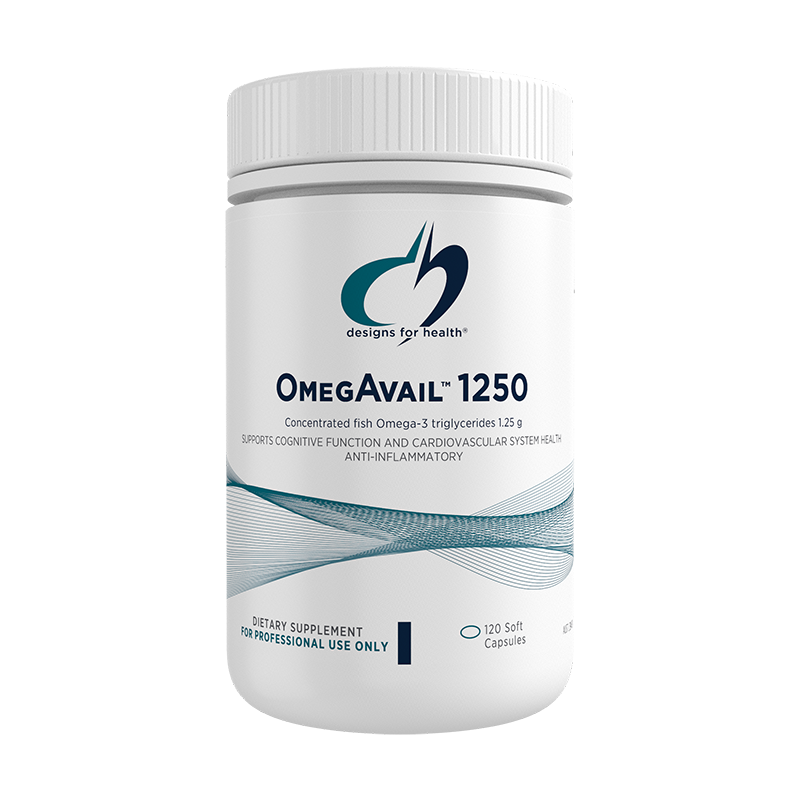
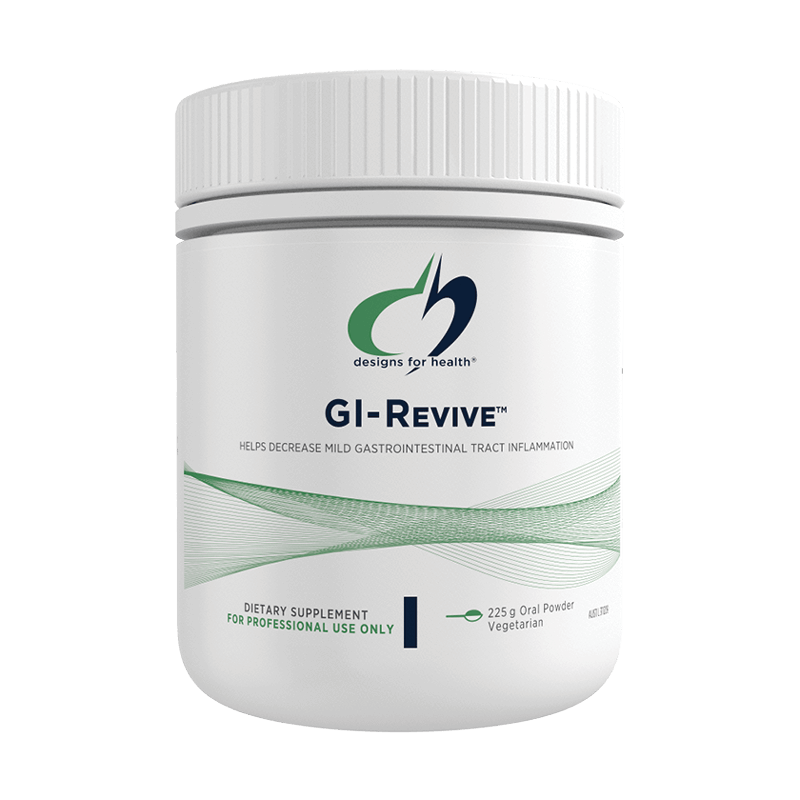
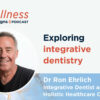 Exploring Integrative Dentistry with Dr Ron Ehrlich
Exploring Integrative Dentistry with Dr Ron Ehrlich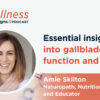 Essential Insights into Gallbladder Function and Care with Amie Skilton
Essential Insights into Gallbladder Function and Care with Amie Skilton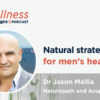 Natural Strategies for Men’s Health with Naturopath Jason Mallia
Natural Strategies for Men’s Health with Naturopath Jason Mallia